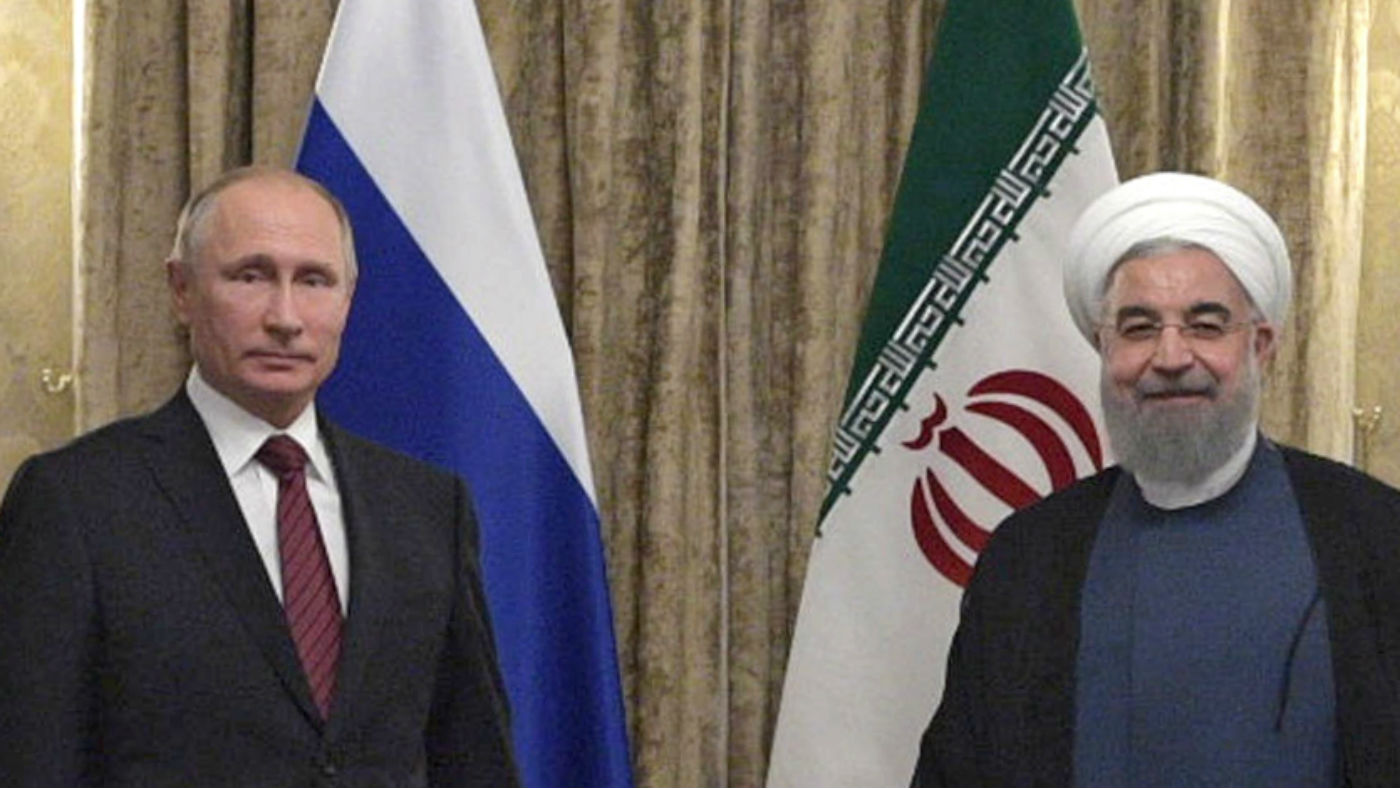Iran cements ‘strategic relationship’ with Russia
Aide to Supreme Leader visits Moscow to shore up support as US sanctions hit

A free daily email with the biggest news stories of the day – and the best features from TheWeek.com
You are now subscribed
Your newsletter sign-up was successful
Iran has sought to shore up its alliance with Russia as part of a diplomatic offensive to offset the effects of renewed US sanctions.
Ali Akbar Velayati, a senior adviser to Iran’s supreme leader, Ayatollah Ali Khamenei, hailed his country’s “strategic relationship” with Russia ahead of a meeting with President Vladimir Putin in Moscow.
He also took a thinly veiled swipe at Donald Trump, saying the US president's “unreliable” actions had made Iran’s close ties with Moscow all the more necessary.
The Week
Escape your echo chamber. Get the facts behind the news, plus analysis from multiple perspectives.

Sign up for The Week's Free Newsletters
From our morning news briefing to a weekly Good News Newsletter, get the best of The Week delivered directly to your inbox.
From our morning news briefing to a weekly Good News Newsletter, get the best of The Week delivered directly to your inbox.
Earlier this year, the Trump administration pulled out of the 2015 multilateral Iran nuclear agreement and begin reimposing economic sanctions on the Middle Eastern country. Washington has since made a concerted international effort to stop its western allies importing Iranian oil.
This appears to have pushed Iran further towards the US’s global rivals. Tehran and Moscow already cooperate militarily in Syria, and have been instrumental in sustaining President Bashar al-Assad during the country’s brutal seven-year civil war.
Iran has also made moves to align closer with China, with Velayati expected to visit Beijing in the near future, Reuters reports.
Yet Iran could be thwarted its effort to woo Putin by one of its great Middle Eastern rivals: Israel.
A free daily email with the biggest news stories of the day – and the best features from TheWeek.com
Haaretz reports that Israel’s Prime Minister Benjamin Netanyahu also met Putin in Moscow on Wednesday, and urged the Russian president to demand that Iranian forces leave Syria.
According to The New Yorker, Israel has joined forces with Saudi Arabia and the United Arab Emirates and suggested to Trump that the US should offer to cancel the sanctions it imposed on Russia four years ago, following Russia’s annexation of the Crimea, in exchange for Russian action to remove Iranian forces from Syria.
-
 Local elections 2026: where are they and who is expected to win?
Local elections 2026: where are they and who is expected to win?The Explainer Labour is braced for heavy losses and U-turn on postponing some council elections hasn’t helped the party’s prospects
-
 6 of the world’s most accessible destinations
6 of the world’s most accessible destinationsThe Week Recommends Experience all of Berlin, Singapore and Sydney
-
 How the FCC’s ‘equal time’ rule works
How the FCC’s ‘equal time’ rule worksIn the Spotlight The law is at the heart of the Colbert-CBS conflict
-
 Will increasing tensions with Iran boil over into war?
Will increasing tensions with Iran boil over into war?Today’s Big Question President Donald Trump has recently been threatening the country
-
 Corruption: The spy sheikh and the president
Corruption: The spy sheikh and the presidentFeature Trump is at the center of another scandal
-
 Putin’s shadow war
Putin’s shadow warFeature The Kremlin is waging a campaign of sabotage and subversion against Ukraine’s allies in the West
-
 Rubio boosts Orbán ahead of Hungary election
Rubio boosts Orbán ahead of Hungary electionSpeed Read Far-right nationalist Prime Minister Viktor Orbán is facing a tough re-election fight after many years in power
-
 Alexei Navalny and Russia’s history of poisonings
Alexei Navalny and Russia’s history of poisoningsThe Explainer ‘Precise’ and ‘deniable’, the Kremlin’s use of poison to silence critics has become a ’geopolitical signature flourish’
-
 Greenland’s capital becomes ground zero for the country’s diplomatic straits
Greenland’s capital becomes ground zero for the country’s diplomatic straitsIN THE SPOTLIGHT A flurry of new consular activity in Nuuk shows how important Greenland has become to Europeans’ anxiety about American imperialism
-
 What happens now that the US-Russia nuclear treaty is expiring?
What happens now that the US-Russia nuclear treaty is expiring?TODAY’S BIG QUESTION Weapons experts worry that the end of the New START treaty marks the beginning of a 21st-century atomic arms race
-
 Epstein files topple law CEO, roil UK government
Epstein files topple law CEO, roil UK governmentSpeed Read Peter Mandelson, Britain’s former ambassador to the US, is caught up in the scandal